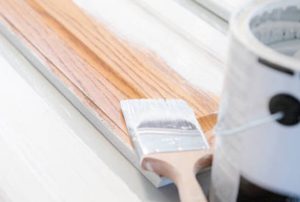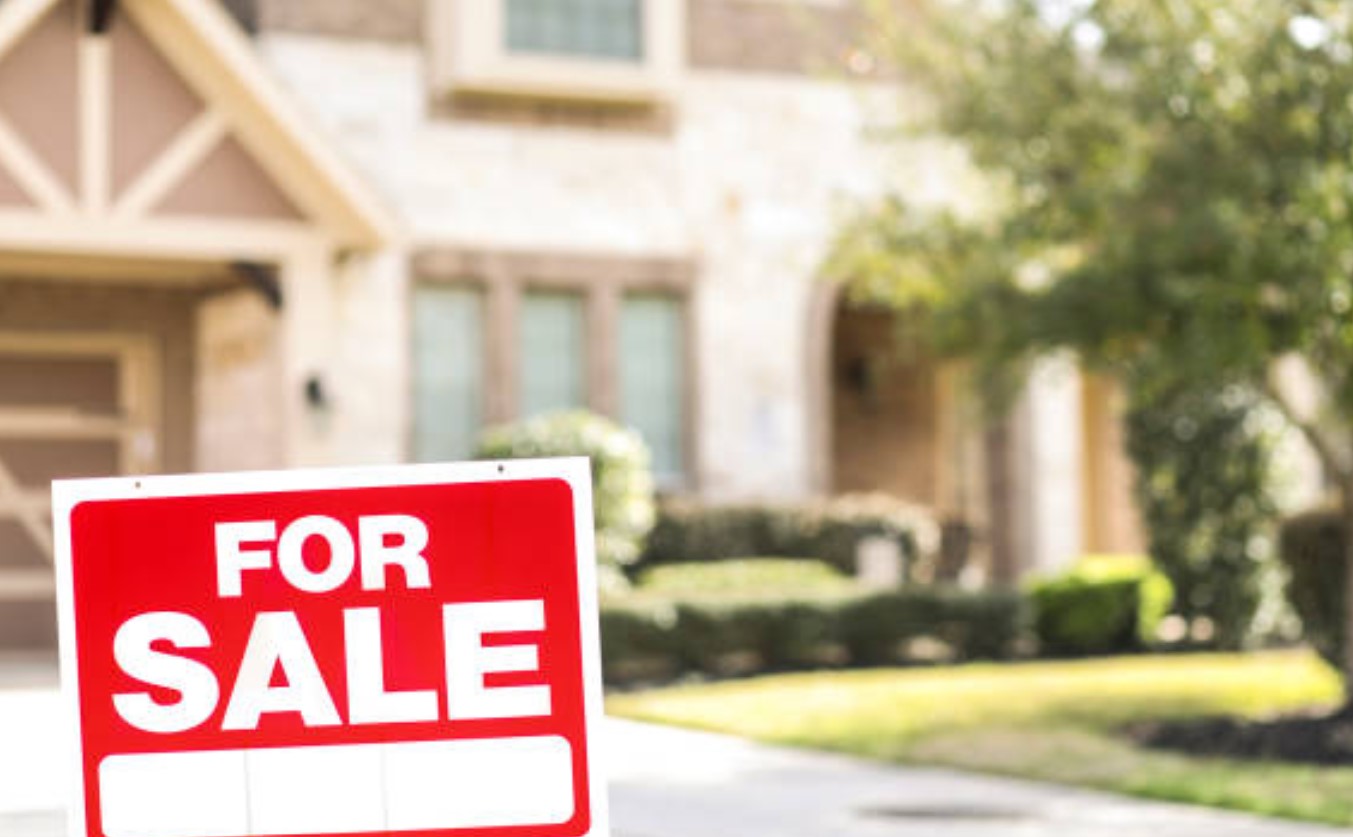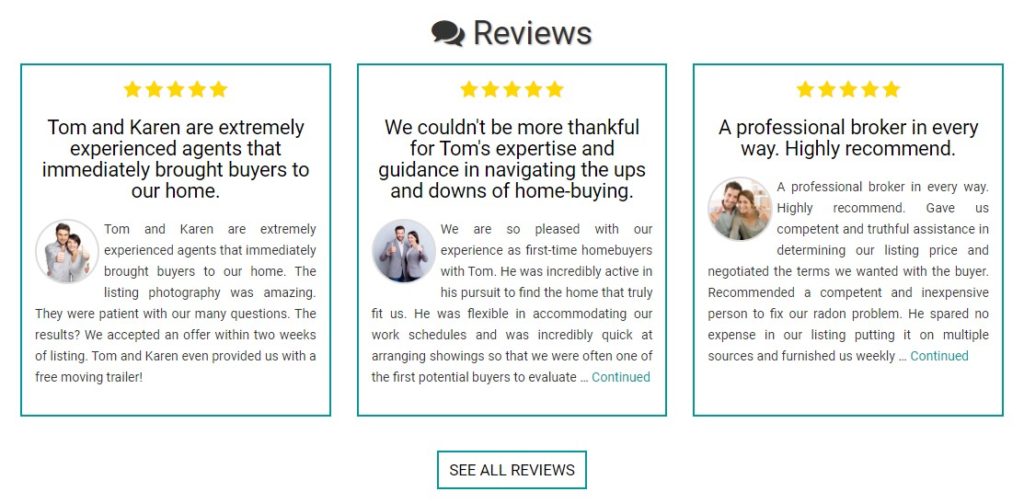15 Tips for New Home Sellers
Are you ready to sell your home, but not sure where to begin? If so, know you’re not alone. Selling is a complicated process that can be emotional and stressful. You probably feel connected to your home, and it may be your largest investment. It is very reassuring to have a good grasp of the whole process before you begin. Being prepared for the sale process can also help avoid some pitfalls and help you think about timing, especially if you will be buying a new home at the same time you are selling.
Read on to learn 15 of the best tips for selling your home.
- Think about why you are selling, and get the facts
 Selling a home can be expensive, so first and foremost make sure you are ready to move forward in selling. Next, jot down your ideas for the sale process. Decide on your time frame to move, necessary home improvements to make before listing and your minimum acceptable sales price. Look carefully at your finances, and call your loan servicer (or look online) to get your current mortgage balance. This will help you plan for pre-sale improvements and know how much equity you have for a future home purchase.
Selling a home can be expensive, so first and foremost make sure you are ready to move forward in selling. Next, jot down your ideas for the sale process. Decide on your time frame to move, necessary home improvements to make before listing and your minimum acceptable sales price. Look carefully at your finances, and call your loan servicer (or look online) to get your current mortgage balance. This will help you plan for pre-sale improvements and know how much equity you have for a future home purchase. - Get to know the real estate market
Are you in a buyers or a sellers market? This important question will help you decide if this is a good time to sell. A seller’s market (like now) means there are more buyers searching for a home than there are homes on the market, and this is the ideal time to sell. You will have the best negotiating power (and will likely get the highest selling price) during a seller’s market. Check market conditions for Otter Tail County with our free market report, which is updated monthly.
You can easily find general information on home prices in your local market online, including using our quick home valuation tool. However keep in mind many factors can affect the pricing of your home compared to your neighbors. Some of these include view, number of bedrooms and bathrooms, how updated the interior and exterior is and other features such as central heat and air. Your realtor will help you interpret sales data for your area when you work together on the listing price.
The best time of year to sell your home traditionally is in May. However, with chronically low inventory over the past couple of years, virtually any time is a good time to sell. Even if you want to wait til the peak spring selling season, winter is a good time to do your homework and get prepared to sell.
- Set your representation game plan
First, you’ll want to decide if you will be hiring a realtor or selling on your own, which is called FSBO or “for sale by owner.” There are pros and cons to each option, but generally speaking most sellers that try the FSBO route end up turning to a real estate professional for help eventually. Each home is unique and may require the help of an expert when it comes to marketing and negotiations.
When hiring a realtor:
-
- Ask for references from previous clients
- Interview the potential agent to make sure it is the right fit
- Trust your agent’s advice – they share your interest in a successful sale!
- Don’t hesitate to discuss all aspects of your contract with your realtor
Our Homes and Lakeshore team would love an opportunity to work with you, and share our experience, knowledge and client reviews.
- Tackle home improvement projects
Most homes will need some work or improvement before selling, and you can do it yourself or hire a professional. Your realtor can advise you what can add value or assist in the sale of your home, and what you should leave for the next buyer to address. The scope of repairs and upgrades will depend largely on the condition of your home along with what potential buyers in your area are looking for in their search. In a seller’s market, often these improvements can be largely cosmetic.
You want your buyers to step inside and instantly imagine their lives there, so spend some time decluttering and getting your home move-in ready. This includes a neutral color palette (sorry, that Minnesota Viking purple wall in the den needs to go!). As you plan your repairs and upgrades, keep in mind that you want to appeal to a large range of buyers of varying tastes.
- Consider a pre-inspection
Almost every buyer hires an inspector to look over the home before the finalizing their purchase, but it’s a great idea for sellers to conduct their own pre-inspection prior to listing their home. A pre-inspection will help you avoid unexpected problems down the road, and you will have the option to fix issues that an inspector will notate for the buyer. - Update your home for a higher ROI
 Upgrading your home is entirely optional, but you can substantially increase the sale price of your home if you consider some popular improvements. Buyers particularly love an updated kitchen with professional appliances, newer bathrooms, radiant heating and solar panels. However, consider if the increased sale price will cover the cost of the investment. Instead of a total kitchen make-over, could you paint the cabinets and put in new matching appliances from a big box store? Don’t forget curb appeal! First impression is everything, so spend some time making your front yard and entry way appealing. Cut the grass, add some plants to the garden beds or pots, rake leaves and trim back any overgrown trees and bushes. Get rid of any junk, broken vehicles or equipment that may have taken up residence outside.
Upgrading your home is entirely optional, but you can substantially increase the sale price of your home if you consider some popular improvements. Buyers particularly love an updated kitchen with professional appliances, newer bathrooms, radiant heating and solar panels. However, consider if the increased sale price will cover the cost of the investment. Instead of a total kitchen make-over, could you paint the cabinets and put in new matching appliances from a big box store? Don’t forget curb appeal! First impression is everything, so spend some time making your front yard and entry way appealing. Cut the grass, add some plants to the garden beds or pots, rake leaves and trim back any overgrown trees and bushes. Get rid of any junk, broken vehicles or equipment that may have taken up residence outside. - Sell as-is to avoid improvements
Another way to go is selling your home as without making any major improvements. This will likely decrease your sales price, but it’s a way to avoid out of pocket costs and speed up the sales process. When you sell as-is, you are not expected to complete any updating or major improvements. However, your home should still be clean, decluttered and can include some minor cosmetic DIY improvements like interior painting.
- List at a competitive price
Deciding on a listing price can feel daunting, but it’s one of the most important factors in your sale. Homes that are well priced in the market sell much faster, and research shows that nearly 60% of homes in the US sell at or above listing price if an offer is accepted the first week on the market. After the second week, that number drops to 50% and continues to go down as more time passes.The most important piece of advice we can give you on pricing your home appropriately is this: Your home’s value is what someone is willing to pay for it, not what you think it is worth or how much you have put in to improvements.Your realtor will research comparable homes (or “comps”) that have sold recently. Any of the comps you use as a reference need to be a close match to your own home when it comes to size, condition and area. The closer to your home, the better. Then adjustments are made between each comp and your home. Perhaps comp 1 has one less bedroom than your home, but comp 2 has one more bathroom. In our area it is common to see a significant price difference between a home on a lake and a home across the street from a lake. A mathematical computation is made which aids the realtor in advising the best selling price. - Tap into your realtor’s expertise
 Our realtors are experts on the value of homes in Fergus Falls, Battle Lake and all of Otter Tail County, and into Grant and Becker Counties. We will help you establish a winning pricing strategy that will bring you the most potential buyers.
Our realtors are experts on the value of homes in Fergus Falls, Battle Lake and all of Otter Tail County, and into Grant and Becker Counties. We will help you establish a winning pricing strategy that will bring you the most potential buyers.
- Stage your home
You will want to be sure that your home appeals to the widest range of potential buyers, and staged homes tend to sell much faster. There are many staging professionals you can hire and a variety of ways to do staging, but here are a few key tips to do it yourself:
- Consider rearranging your furniture to make rooms feel more open, organize and decorate in a style that will appeal to most buyers. Remove large, bulky pieces of furniture to storage.
- Declutter, clean and organize. A room filled with too much stuff makes everything seem smaller, more crowded and it can give the impression that your home lacks storage. Also limit the amount of personal items, like family photos, as these can sometimes make it difficult for potential buyers to picture themselves living in the home.
- Pair down or store kids and pets’ items. Buyers want to visualize their own families in the home, and while many people are pet owners or parents, it’s best to stow away loose toys, gates, highchairs, etc. Also repair any pet damage.
- Do a thorough cleaning of your house. Think of it like a “spring cleaning.” This is the time to do a big clean – dust the baseboards, clean the ceiling fans, wash your cupboard fronts and anything else that you might not do often.
- Heavily market your listing
Once you have your home ready to list, it’s time to get your home seen by as many eager buyers as possible. Below are the best tips to list your home for sale. These are some of the strategies we use:
- Higher a professional photographer. The vast majority of buyers search for homes online, and photos are your home’s first impression. Professional photos make your home stand out, and they are usually much higher quality than photos taken by a seller.
- Ensure there is an eye-catching listing description. Your home’s description should highlight all of it’s best features and the amenities that are popular with buyers. If a neighborhood park, a pool or walk ability are popular in your area, make sure to include them. Ask your realtor if you can review the listing text and suggest any edits before it goes on the internet. Just keep in mind these descriptions are meant to be brief, as browsers will not usually take the time to read too much text.
- Advertise, advertise, advertise. Studies show that around 80% of buyers find their home online (posted by a realtor), 75% find it through a realtor and 50% found their home by the for sale or open house sign on the property. We use multiple channels of advertising and social media when selling a home. The takeaway: Cover all of your advertising bases so the most buyers can find it.
- Be available. Make sure you are available as often as possible to accommodate showings. You will want to vacate the home just prior to the walk-through so buyers can walk around and speak openly with their realtor.
- Be aware of potential closing hurdles
If your home is on the market and selling slowly, you may want to review this article and address some of the suggestions listed above, such as changing asking price, making home improvements or changing your marketing plan. Once you get an offer and your home goes under contract, there are still potential issues that may arise.
- Your home does not appraise high enough. If a buyer finances your home, the lender orders an appraisal to assure
that the home’s value is equal to or higher than the amount being financed. If the value is too low, the buyer has to pay the difference out of pocket or terminate the sale. - Bad home inspection. An inspection report will reveal both large and small fixes, and you will likely end up negotiating after the report is finished. A buyer also has the right to decide to walk away from the deal if the fixes are too expensive and the seller does not negotiate. Keep this in mind, and be flexible.
- Financing fails. During the process of loan underwriting, your buyer’s financing could fall through at any point. This can occur from a variety of issues, such as missed credit payments, change in employment or new loans.
- Move out
 No matter where you move, moving is time consuming and expensive. Our Homes and Lakeshore team offers free use of a box truck to our buying and selling clients. Also, be prepared to potentially move quickly. Homes sell in an average of less than 70 days from listing to closing, so you may only have a short period of time to move before the closing date.
No matter where you move, moving is time consuming and expensive. Our Homes and Lakeshore team offers free use of a box truck to our buying and selling clients. Also, be prepared to potentially move quickly. Homes sell in an average of less than 70 days from listing to closing, so you may only have a short period of time to move before the closing date.
- Closing
Both seller and buyer are responsible for many legal documents and processes when it comes time to close:
- Opening an escrow account. An escrow account is where sales related funds are kept throughout the transaction, and it needs to be managed by an independent third party. If you work with a realtor, they will most likely open an escrow account for you with a title and escrow company. If you plan to sell FSBO, you will need to find an escrow service to use.
- Submit property disclosures to buyer. As a seller, you are required to disclose any known issues or defects that could compromise the safety or value of the home. This is known as the property disclosure, and it must be documented in writing prior to closing.
- Review closing costs. Make sure you review your estimated closing costs prior to closing day so you can be prepared for the charges. Seller’s closing costs can be as high as 8-10% of the home’s sale price, and that amount includes both the selling and buying realtor’s commission along with taxes and fees. If you have equity in your home, these fees come from the profits you will receive, so you may not need to come up with cash out of pocket.
- Sign documents. At your closing appointment, you will sign the legal documents that finalize the sale of your home.
- Hand over keys to the buyer. Once the seller vacates the home, the keys are handed over to the buyer. You may hand keys over at the closing appointment, or this could come later depending on your sales agreement.
- Final escrow
 The last and final step of the sales process is handled by the escrow agent. After closing, the escrow agent transfers the home’s deed to the new owner or lender, they payoff your remaining mortgage balance, pay all closing costs and insure that you receive your share of the profit.
The last and final step of the sales process is handled by the escrow agent. After closing, the escrow agent transfers the home’s deed to the new owner or lender, they payoff your remaining mortgage balance, pay all closing costs and insure that you receive your share of the profit.



